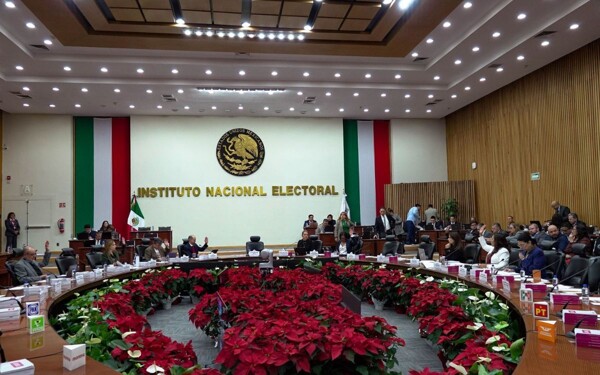
The President of the Senate, Gerardo Fernández Noroña, reported this Wednesday, February 26, that the Green Ecologist Party postponed the anti-nepotism reform due to its interest in the governorship of San Luis Potosí. The Senate had postponed the enforcement of the reform aimed at banning nepotism and immediate reelection in public office until 2030.
In a video from Político MX, Fernández Noroña explained that the Green Party was divided regarding the vote on the reform and mentioned that the interest in the governorship of San Luis Potosí is related to the possible candidacy of Ruth González Silva, the wife of the current governor Ricardo Gallardo Cardona.
The original initiative stated that the reform would come into effect for the midterm elections of 2027, where the Chamber of Deputies and 15 governorships mostly controlled by Morena would be renewed. However, at the request of the PVEM, it was decided to postpone this initiative.
The reform, which aims to prevent direct relatives from holding political positions that their relatives leave vacant and to eliminate the possibility of immediate reelection, was approved in general unanimously in the Senate with 127 votes in favor.
On Tuesday, February 25, the Senate approved the reform to prohibit consecutive reelection and nepotism in public office, but it was decided to delay its implementation until 2030. The modification to delay its application received 97 votes in favor and 26 against, reflecting discontent among the parties.
The reform will now pass to the Chamber of Deputies for analysis and possible approval, with no expectation of facing obstacles due to the ruling majority. If approved, the new constitutional provisions would come into effect for the federal and local electoral processes of 2030, with the aim of limiting nepotism and reelection in Mexican politics.
President Sheinbaum has explained that the reform aims to combat electoral nepotism and promote greater equity in the democratic processes of the country, in a context where various families have maintained political control by passing public positions among relatives, regardless of the party they belong to.














